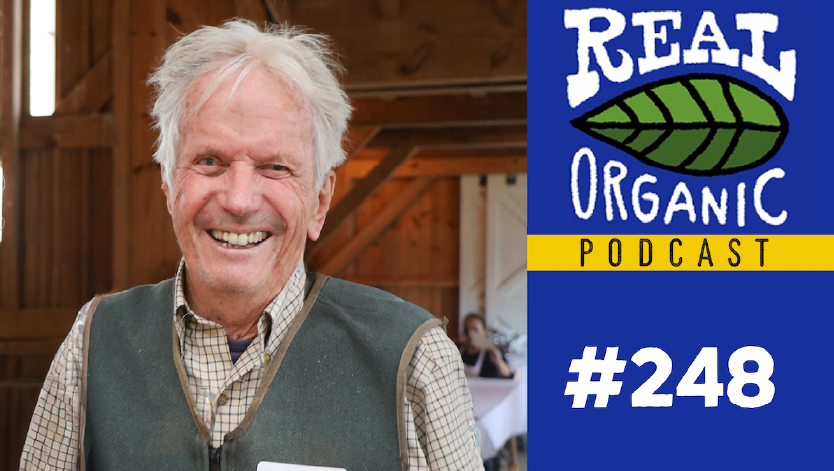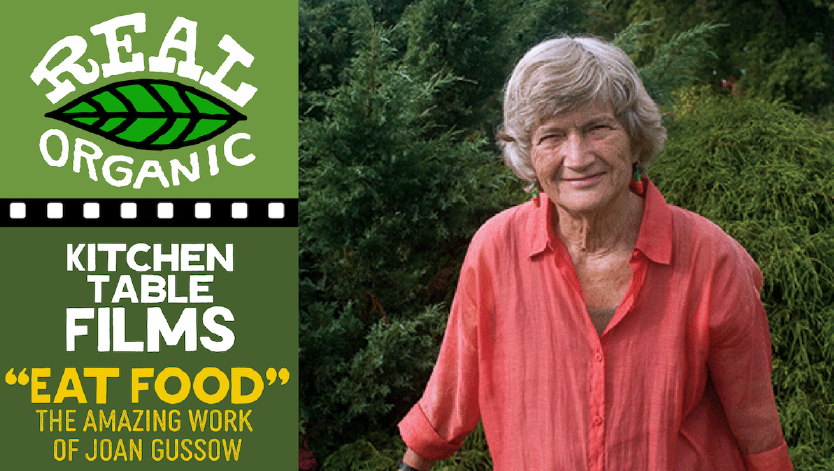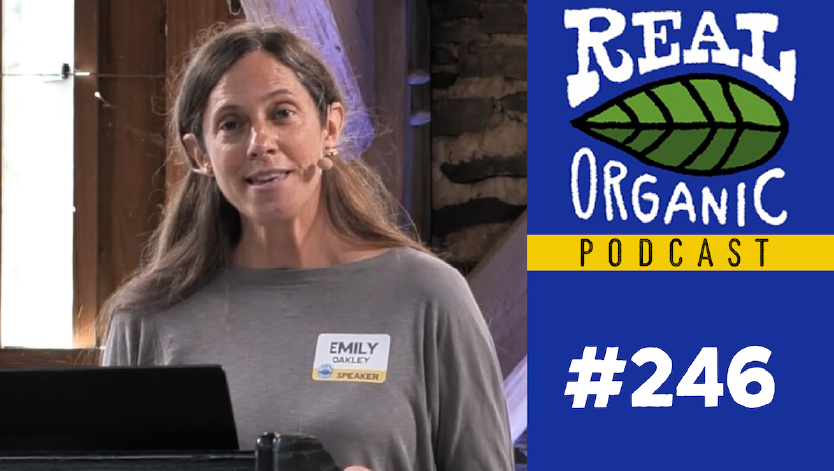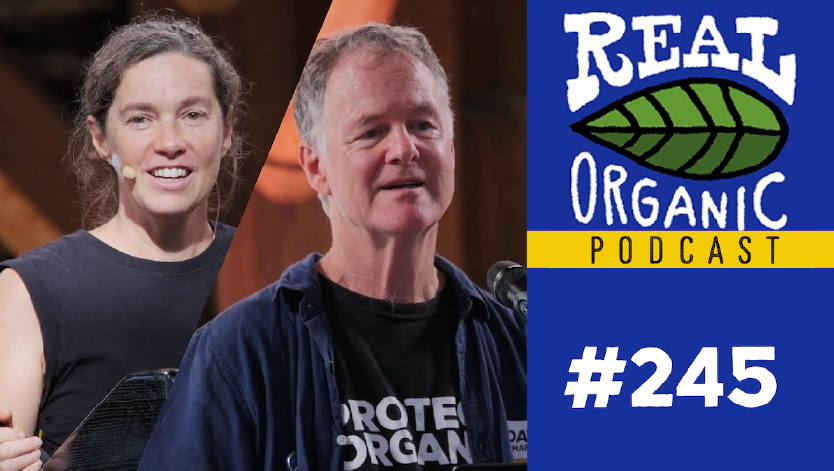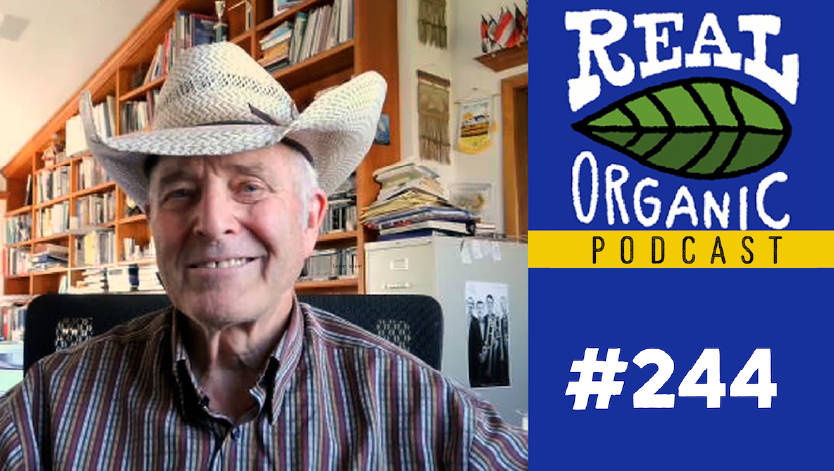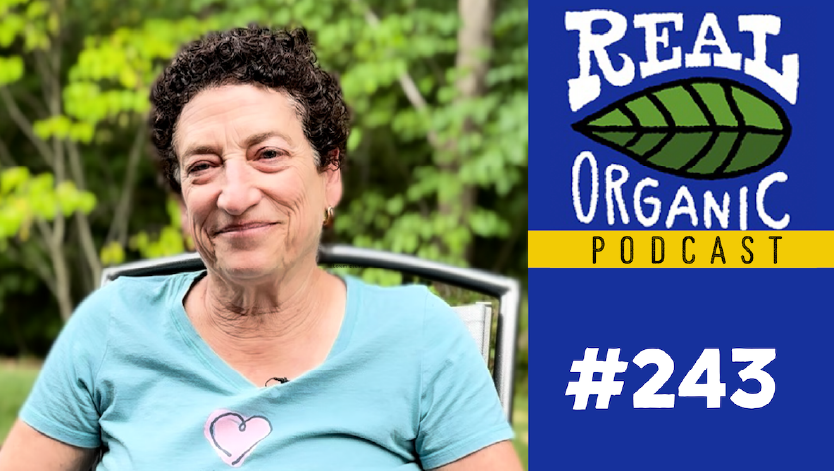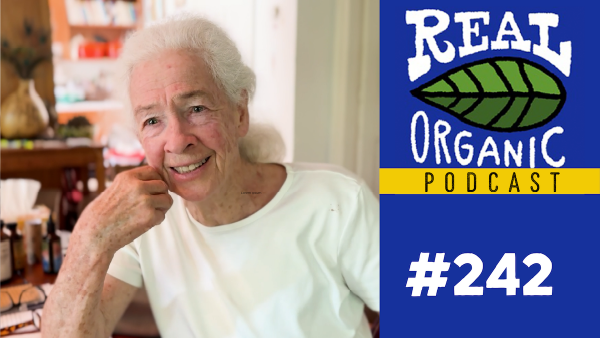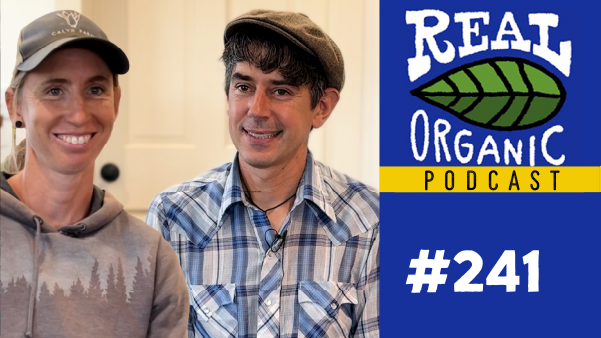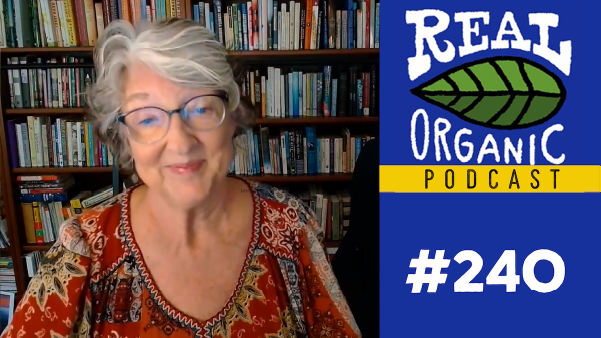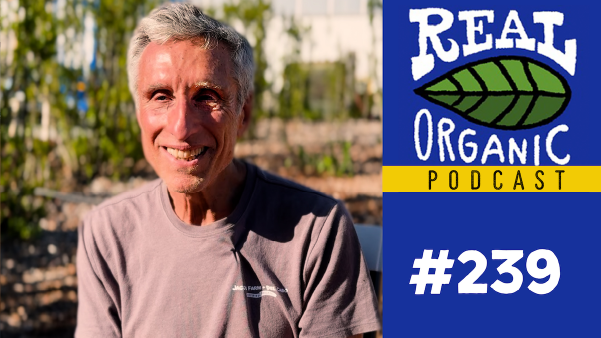Episode #006
Peter Whoriskey: Uncovering Fraud in Organic Meat, Milk, Eggs and Grain
Welcome! You can subscribe and download episodes of our show through your favorite podcast app.
You can also subscribe to receive the video version of each episode on our YouTube channel.
Our Peter Whoriskey interview has been edited and condensed for clarity.
This interview has been edited and condensed for clarity.
Dave Chapman: I’m talking to Peter Whoriskey today, a journalist who has worked at the Washington post since 2001. Peter, welcome.
Peter Whoriskey: Thanks for having me.
Dave Chapman: Longtime fan of your work. I see that you shared in a Pulitzer Prize at the Miami Herald for, for hurricane Katrina coverage.
Peter Whoriskey: I covered Katrina too, but the Pulitzer was for Hurricane Andrew, which is kind of ancient history, but yeah.
Dave Chapman: Yeah, it’s a big deal to get a Pulitzer though! Congratulations.
Peter Whoriskey: We were happy about it.
Dave Chapman: Feddie award from the National Press Foundation in 2011. Could you explain a little bit what the Feddie is?
Peter Whoriskey: Honestly, it was an award that they created that year, I think. And i I was about the first one or the second winner. Anyway, it has to do with stories that show how policies in Washington affect people across the country. A lot of times we write about things in DC and then don’t really follow up and see what happens in quote unquote, the real world. And that award is meant to honor the best coverage that follows up on, on where these things go. Yeah.
Dave Chapman: Great. Well, that’s what I want to talk to you about today. So you did a series of articles in 2017 about the National Organic Program and, and really about the failures of the National Organic Program. Could you tell me how you came to that series? How’d you get started?
Peter Whoriskey: That one was just an idea that the editors had – sort of vague and broad and in the way that they described it, one of the editors said, “geez, the organic section at my supermarket is gigantic. Now…what’s going on there? They’re making so much money and it’s becoming such a big deal. And the prices I pay are quite a bit higher. So take a look at it and see if what we’re getting is, is really organic.”
And that was the beginning of several stories that we did looking at how well the USDA was policing the system that they’d set up that, you know, millions and millions of dollars of are transacted and based upon, you know, the USDA organic label. Yeah.
Dave Chapman: And what was the obvious first choice, the first place to look?
Peter Whoriskey: There were so many places to look. I think we took on milk first because there was a lot of interesting ways that we could see whether people are abiding by the rules and whether the organic program was policing it correctly.
And, you know, the key one of the key issues on organic milk or the, one of the things that distinguishes organic milk is it’s supposed to be from cows that are on pasture. And what was interesting to me about that was that we could really show without actually even getting onto the farms or into the barns, whether or not they were complying with that rule.
We went out to, well a it’s hard to call this a farm. It was just like so massive. It’s 15,000 cows out in Colorado. And we could see and drive around the property and see that there were, you know, out of 15,000 cows, only a few hundred at any given time, out on pasture, so that we could look at it that way and decide whether or not they were complying.
But the sort of ingenious trick that Pete Hart came up with, was to take a look at the chemical constituents of the milk. You can tell based on the chemical constituents whether a cow has been eating grass or eating corn, or whatever they might be feeding it in the barn.
And we could tell again, that just as you would think, based on how few cows were grazing that the milk from this very big organic dairy was not coming from grass. And then we looked and saw that the inspections that were done there were pretty flimsy.
Dave Chapman: Yeah. So there are several things there. One is that on a very obvious level, the quality of the milk is different based on what the cow is eating. Which is of course the organic story – that the food is different based on how you manage the soil and based on how you provide for the animals. And how long… this was their Colorado Dairy for Aurora? It was, it’s I believe the biggest certified organic dairy in the world?
Peter Whoriskey: At the time. I think that’s correct. I haven’t checked since then, but there are a couple of other big guys, as you know, that are, that seem to be doing the same thing.
Dave Chapman: Yeah, yeah. How long did you spend working on that story?
Peter Whoriskey: Longer than my editors wanted, which is almost always the case. But probably three months, something like that. It took a long time. It wasn’t an easy story to put together.
We, I mean, we went out there and visited and we actually had a drone fly over the farm just in case. Like, I was driving around and then I hired someone to drive around the farm for several weeks afterwards just to see whether or not maybe the day that I went out there, there just weren’t any cows out there. And you know, every time the guy we hired to do that looked out, it’s the same thing. It was like a tiny fraction of the cows that they were milking or out on pasture. And then we got the drone to do it. And then we had to do the chemical analysis. So it was a bit of.. those are my excuses – that’s why it took a long time.
Dave Chapman: Yeah. How, how many visits did you have to, to the Aurora site?
Peter Whoriskey: Between me and the guy we hired probably six.
Dave Chapman: What time of year was it? I mean, was it, was it pasture season?
Peter Whoriskey: Yeah, it was. I can’t remember exactly, but we made sure that it was. It was toward the end of pasture season, but it was definitely within pasture season.
Dave Chapman: Yeah. So that was a big story. That was the front page of the Washington post. And I think it had a huge impact at the time. This was in 2017.
Peter Whoriskey: Yep. Got a lot of attention. You know, one of the reasons that the editors said I should take a look at it is that they know people are very interested in food and whether they’re getting what they think they are. You know, supply chains are kind of opaque.
We don’t really know where our food comes from and the editors were right. I can’t remember how well it did online, exactly, but it did very, very well. It got a lot of attention. It got attention not only from, you know, readers – a lot of readers, but, you know, from Congress. Some people in Congress took note and that was the beginning of a bit of a campaign to straighten things out.
Dave Chapman: Yeah. So I’m curious do you think it has straightened things out?
Peter Whoriskey: No. You know, one of my regrets about the business in a way is that, you know, we can write a lot of… as we did it in organic. We started with milk and then we got into imports and then chickens and you know, we raised a lot of issues. And then Congress did put up more money for the USDA’s National Organic Program.
So I mean, I thought maybe things would get better. I can tell you that, you know, just this week I got a call from somebody, very credible who has recordings of somebody saying that the organic grain that they’re importing is not actually organic, which is another one of the stories that I’d written about too. It’s the same exact thing; large grain shipments reportedly, according to these people, are fraudulent.
You see time and again various news stories by other outlets, you know, raising questions about different organic farms – usually large. And so, it doesn’t seem to me that it’s straight. I mean, maybe it got a little bit better. I don’t know. They did spend more money, but the results for me..It’s hard to tell any difference.
Dave Chapman: So you did do some followup stories. One question before I do that: were you welcome to tour the farm?
Peter Whoriskey: No, that’s no. I mean the first organic dairy farm I went to was in Texas and, you know, they basically chased me off. And I can’t remember, but I felt, you know, not safe. Which, I mean, I do a lot of stories that people might not necessarily like, but this was actually one of those times where I said, “Oh, this is not a good place to be.” And so yeah, they didn’t ever invite me and say, “Hey, come look and see for yourself.” It was never that situation.
What’s irritating about that is that they have their public relations, you know? They all have nice websites and make you think that every gigantic corporate farm looks like some little family farm from 50 years ago and that there’s complete transparency. But there isn’t. In fact usually, and this is partly for biohazard reasons, they have big warning signs saying, you know, “get out of here.”
Dave Chapman: And what would the biohazards be?
Peter Whoriskey: Well, like with chickens they’re afraid of avian flu and stuff like that. I’m not sure what it would have been at a dairy, I’m not that familiar. But that’s the stated reason that they don’t want any visitors.
Dave Chapman: Yeah, so there was a follow-up to this story. There was actually a formal investigation by the USDA to see if, in fact, Aurora was complying with the rules. And you covered that also. Could you tell us about that? What you remember?
Peter Whoriskey: Yeah. I mean, they went out there, based on my story and asked them questions. And despite what I thought was overwhelming evidence, which is like photographic and chemical evidence that they were not producing grass-fed, pasture-raised cows. You know, despite all of that, the company told them “we’re fulfilling all of our obligations.”
They went to the state of Colorado to their inspectors and said “why didn’t you find anything? Is there something wrong here?” And they said, “no, everything’s fine.” And then they closed the books and that was it. Nothing.
Dave Chapman: There was one onsite inspection and Francis Thicke, who was on the National Organic Standards Board, asked the person at the USDA in charge of that inspection, whether they had made an announced or unannounced inspection. And she said, “well, yes, it was announced, we made an appointment.”
Peter Whoriskey: Okay, yeah. Shocking. That does seem to be one of the big problems, you know, I mean, there’s two. I think that a lot of consumers are surprised by two things: One is that you hire your own inspector-certifier and the other is that nearly all of the inspections are announced. So, you know, human nature being what it is, and the amount of money that’s involved, and how much you can make by selling conventional products as organic, it shouldn’t be a surprise to anyone that there’s some mischief going on.
Dave Chapman: Yeah. Do you have any idea how much money is involved? I mean, like a big dairy like that.
Peter Whoriskey: I don’t remember the numbers, but it’s a lot of money. Just like one of the stories we did was about this shipment; it was corn and wheat or something like that. And it comes over, it starts somewhere in Eastern Europe or Turkey, and it starts off as we trace the documents back – I had a good source on this, and I trace the documents back to the origin – and when it left port, it was conventional grain along the way. And it magically became organic grain that the documents were changed. And and in doing that, I think that price roughly doubled. And it was a whole ship basically of grain. So there’s a lot of, lot of money to be made.
Dave Chapman: I have been told that in terms of the grain fraud, that that’s pretty much organized crime over in Eastern Europe. And in fact, somebody from the FBI told someone I know who has been involved in investigating these things that she should really be aware of having her email hacked or phone tapped, pretty scary stuff.
Peter Whoriskey: Yeah. I mean, these are, you know, not nice people.
Dave Chapman: Yeah, yeah. Did… were you ever concerned about that kind of kind of invasion risk?
Peter Whoriskey: No. you know, I didn’t. I think it would have been scary, especially if you were in some of those areas. But in the United States, I didn’t.. you know, except for that one incident on the Texas farm where a guy shows up with a shotgun rack, I haven’t, I didn’t feel threatened. It’s kind of part of the business sometimes, but I didn’t really notice it.
Dave Chapman: So, so grain fraud was your second big part of the series, and that was also big. That landed with a big splash. I think of all the things that you put out you know, the chickens and the cattle and the CAFOs, there’s actually a fair amount of support in Congress for that, but there’s very little support in Congress for fraudulently stealing the market from American farmers and cheating the American consumer. So I think that one, of everything you wrote landed most heavily in Congress. And they actually allocated a fair amount of money to try and stop it. I don’t believe that they have been the least bit.
Peter Whoriskey: Yeah, no, no. Like I said, just last week I got the call from somebody saying “I got recordings of somebody saying that they’re bringing a lot of grain in that’s totally bogus.” And the sad thing is, yes, this does sort of alert the congressmen who say, “I want to keep the bogus grain from overseas out, because it’s hurting American farmers.” But you know, a gigantic organic dairy that’s not really organic? It’s hurting a lot of American farmers too.
Because there’s a lot of American farmers who’ve invested in smaller operations – 200, 300 cows, and they are being crushed by these gigantic so-called organic operations. And I think it’s a little regrettable that they don’t pay attention to these people who are also being hurt.
Dave Chapman: Yeah, absolutely though. I mean, the organic farmers in America? Dairy farmers are being put out of business right and left right now.
Peter Whoriskey: I mean, it’s heartbreaking because I get calls from these guys here and there and less and less since the series was a few years ago, but…yeah,, it’s just heartbreaking. Because, you know, they took the time [to legally transition to organic production] and it does take time. And they lose a little bit of money transitioning from conventional to organic, and they did that based on certain prices for organic milk. And now that it’s being flooded by what might not be organic milk and the prices are coming down and these guys are getting crushed.
Dave Chapman: Yeah. There was a story in Business Insider that cited a Washington Post report. And I actually didn’t see the original report in the Washington Post. And it says that the Washington post visited seven farms in Texas and New Mexico in 2015 and saw a vacant pastures. So it was just like your story, but it was an earlier version.
Peter Whoriskey: I think that that was just tucked into one of the stories. Yeah, I went out there that was sort of.. I guess I forgot about that because I guess I was working on that milk story longer than I said. I went out there and I was like, “wow, there’s no cows out, but how do I prove that?” Maybe I just hit it on the wrong day or whatever, and then yeah, that was the beginning of that. So we were kind of working on it for close to a year.
Dave Chapman: Yeah. I thought it was longer.
Peter Whoriskey: It was. I mean, I’m always trying to pretend I do it more quickly than I actually do, but yeah.
Dave Chapman: I read somewhere else that those seven farms produce more milk than the 450 certified organic farms in Wisconsin.
Peter Whoriskey: I think that sounds about right. They were gigantic Agrimark dairies and you know, it was too hot. It was not the ideal place to have dairies, because it was like, too hot during the summer, I think, for cows to graze.
Dave Chapman: Yeah, yeah. Out in the desert. So one of the things that has been a little amazing to me, is that you managed to discover and prove at least one shipload. How many was it? One shipload that you discovered of fraudulent grain, or was it more than one?
Peter Whoriskey: I think it was more than one. We had one you know, it was kind of dead to rights. And then there were a couple of others that were at least suspicious.
Dave Chapman: And at that time, you did this with a very tiny budget?
Peter Whoriskey: Yeah. There was no budget. It was me.
Dave Chapman: Yes. You and, and yet the National Organic Program has said, “well, we don’t have the budget or the resources to deal with this.” And yet they are a multi-million dollar organization. And their primary mission is to protect the integrity of the organic label.
Peter Whoriskey: Yeah, I don’t understand because you know, at least some of the time people who’ve given me tips about fraud of one kind or another are people who’ve already gone to the National Organic Program and laid things out. And that then it doesn’t get picked up and investigated? And as we could see from the investigation after the milk story, there’s reasons to doubt how tough the scrutiny is that comes with a National Organic Program.
Dave Chapman: So, is there anything you want to add to that about grain before I move on to chickens?
Peter Whoriskey: Grain?
Dave Chapman: I have one question about that. It seems to me that there might be some sort of unholy alliance between fraudulent grain imports and fraudulently certified CAFOs. Because what makes a CAFO thrive is cheap grain. And you know, the whole point is that they’re not depending on pasture, they’re depending on the grain that they’re buying in. And they’re claiming that that grain is organic. So I’m just curious – do you think that there’s a synergy for those two fraudulents?
Peter Whoriskey: Absolutely. I mean, yeah. There were times when I traced some of the organic, or so-called organic grain to various CAFOs and said, “Hey, did you know that this is probably not organic? And it came from this ship and blah, blah, blah?” And at least in some cases people said, “Oh, that’s terrible because I’m trying to run an organic dairy or raise organic cattle.”
And there were others though that I don’t think they really cared. They’re just like “it was cheap. And it said organic, and that’s all I need.” Cause they were meeting the letter of the law. They could sell the beef or whatever at the prices that they wanted to. And that’s all they cared about. You know, that was a fun story to do. I gotta say that because of the grain one, we had all these import documents, which I was completely unfamiliar with, and this organic grain was fumigated.
I mean, the documents were just like so strange to me. We found that there was a document show that the grain had been fumigated, you know, with chemicals that are not allowed on organic produce or crops. And I don’t know, that story…I had a lot of fun doing that; the actual investigation itself was pretty fascinating.
And I think that’s one of the problems is that there’s a really high bar for anybody like a reporter to get into this because you have to understand how the inspections work for the organic program. And then you have to trace things back and it’s really hard. You know, I would try to figure out, I would go to places that were selling grain and try to figure out where their grain was coming from. And it’s just really difficult to get the paperwork to actually prove something.
And, you know, there’s more than once where people were saying, “if you get this wrong I’m going to sue you.” So, I mean that’s always a risk that often gets brought up when you’re writing an a story like this. But it’s, it’s just a very difficult and opaque to investigate.
Dave Chapman: Yeah, business. Did you do most of your investigations from a desk, or were you flying around to ports and, you know, skulking around the docks?
Peter Whoriskey: Well, I mean the dairy stuff, I was out driving around dairy farms. The grain one was a little bit at the ports and a lot of just like trying to get people to talk to me and give me documents, like from Turkey and other places.
Dave Chapman: It’s interesting to me that such a large percentage of the organic food sold in America comes from other countries.
Peter Whoriskey: It’s astounding. And I think that if we looked more closely – and I don’t know that anybody is – we’d find that there’s a lot of fraud there.
Dave Chapman: Yeah, it’s especially interesting to me that we’re importing organic grain for cattle feed because we are the major grain exporters of the world.
Peter Whoriskey: That’s the big riddle. Corn, right? I mean, we export tons of corn, but for some reason we import organic corn. It doesn’t make any sense.
Dave Chapman: Yeah. Well, let’s talk about chickens and eggs, cause that was the, the third big part of that series. And you know, just to tell people that each part of the series involved several stories, it wasn’t just one story. There was almost always a followup story. I think in the case of Aurora dairy there were probably three or four follow-up stories. Aurora was responding and you were responding and then the USDA responded. So, you know, there was an ongoing drama unfolding. So let’s talk about chickens and eggs. How did you get into that?
Peter Whoriskey: Well, that one was sort of one of those that just pops up because it’s easy to see that there would be a story there, because there had been a lot of debate over this Pasture Rule and how much space chickens should have if they’re considered organic. And you know, even basic things like what is considered “outside” were being debated. Whether a chicken was like under a roof and on a concrete floor was that was somehow considered “outside.”
And so, what was interesting about that one that’s sort of different than the other ones – cause the other ones, there were fairly clear rules being violated – in this case, there were rules and they were being interpreted in a way that I don’t think any consumer would think was fair.
And so that’s how I got into it, I just started looking at it because there was a debate. It was like just sitting there and I decided I would go and look at some of the organic egg places that said that they were complying. And the USDA eventually said that they are complying, but nobody would have expected it based on what was actually going on in their chicken operations.
Dave Chapman: So did you go inside some of these chicken operations?
Peter Whoriskey: Yeah, I think I did. Yes, I did. And I saw some good ones and I saw some bad ones. And you know, again, usually the bad, you know, what I’m calling a bad one is one that I think is operating in a way that consumers would not consider up to their organic expectations. You know, chickens crowded together in tiny quarters and there’s nothing “pastured” about them, even though that’s what the rules call for. You know, putting an animal out on concrete floors doesn’t seem like what people would have expected of chickens, of organic chicken. So I did get into some and that was another one that again, caught a lot of people’s attention.
Dave Chapman: As you say the huge chicken CAFOs are often meeting the letter of the law, but certainly not the intention.
Peter Whoriskey: Yeah, and, and in some cases I think that “meeting the letter of the law” is as a very generous industry attorney has interpreted it. I can’t remember what the exact Pasture Rule was. Do you remember? I can’t remember what it was.
Dave Chapman: They must have outdoor access so they can exhibit their natural behaviors.
Peter Whoriskey: Yeah, these chickens were not doing that. And they were inside on concrete, you know. I’ve seen legitimate, organic chicken places and they just run outside and they’re like kids at recess or whatever. And it wasn’t the case at these. Again, it’s the very large operations that have figured out a way to make money, lots of it, by labeling something “organic” and selling it at organic prices, even though it doesn’t meet most consumers expectations of organic food.
Dave Chapman: So when you looked at Aurora and you looked at these large chicken CAFOs, and you looked at the fraudulent grain imports, you also were seeing real pasture-based dairy farms and chicken farms where the chickens really got to be outside and real grain farms. So there was always a stark contrast.
Peter Whoriskey: Yeah. It reminded me in a weird way of – because you saw, in the case of the milk, for example, there’s a lot of Amish farmers who were really feeling, feeling the heat of the lower prices. And there are tons of like small chicken farms, egg farms and you know, just like family operations – and it reminded me quite a bit I mean, these people are very genuine, hardworking, you know, basically small businessmen, they’re farmers.
And it remind me quite a bit of a story that I had written just a year before I did the organic stuff, which was about hospices, which seems like a weird comparison. Except that hospice also started out as sort of a reform movement. And people thought we were dying too often in the hospital and people weren’t getting what they needed toward the end of life.
And it started, you know, in church basements. And hippies, people who think a little bit outside the box, and it started off with them. And it’s really, you know, good hospice care is a great thing. And then the federal government got involved because they started Medicare and started paying for it. And then once that happened, big, big business started coming in and, you know, the big organizations didn’t run it in the same spirit at some of the innovators did .
I thought the same thing happened in organic farming, where you had a lot of back to the earth, sixties, seventies, people. And they created this really interesting product that a lot of people wanted. And and then it got you know, compromised when very large companies came in. (And a small company could do bad things as well.) But it so happened that some of the large companies come in and they see money to be made. And they’re not nearly as interested in some of the ideals of the original founders of the of the movement, whether it be hospice or organic food.
Dave Chapman: All right. I will come back to that, but I want to ask you about the O L P P and which was actually the organic movements. You know, there’s this group of people I don’t know, two to 500 people who really spend a lot of time and energy trying to keep the USDA honest around organic. And I, and I would have to say that as hard as these well-meaning people have worked for the last 15 years, it hasn’t gone well. And one of their efforts to try and cut off those smart lawyers who were defining outdoors as being under a roof on concrete, was to create something called the old LPP, where the animal welfare reform. And it would have been a big deal. It would have according to Miles McAvoy, the, the head of the national organic program, it would have led to the de-certification of three quarters of the certified organic eggs in America, which when he told me that, and he did, we were in a meeting with his boss, Eleanor Starmer.
Dave Chapman:
And it was, it was when Eleanor met with a group of us who had, who had created a moratorium, a letter calling for a moratorium, and we got many, many organizations to sign a moratorium on certifying hydroponic. And we, we sent that to secretary, bill sack, and actually it was followed quickly by a letter from Senator Leahy, also calling for a moratorium on new certification of hydroponic as organic. And, you know, one thing that Tom Vilsack did that was really good was to appoint Elanor Starmer as head of the AMS at the USDA, their cultural marketing service. So she was, she was the boss of miles McEvoy, and she pulled him out of a national organic standards board meeting to meet with us. And unfortunately, she, she was telling us that she couldn’t do it. She said, I wrote the letter and, you know, yes, we will have a moratorium until we get this figured out on, on any new certification of hydroponic, which is, you know, clearly been called that it should not be certified as organic, you know, and an earlier recommendation from the national organic standards board. And she said, but the lawyers at the USDA said, I can’t sign it because we’ll just get sued. And I thought to myself, well, you’re going to get sued either way, cause we’re going to Sue
Peter Whoriskey:
You. But
Dave Chapman:
I think she fears their lawyers more than she fears ours.
Peter Whoriskey:
So I think that’s right.
Dave Chapman:
And at that meeting, I said, if Eleanor, if you don’t sign this, if you don’t issue a moratorium, this hydroponic is going to be too big to fail in, in organic certification and miles replied. And it, it was, I remember it very vividly. He said, if, if we can pass the animal welfare reform and I’m working very hard to pass it, he said, we will, that will lead to the decertification of three-quarters of the eggs in America. So don’t tell me, we’re afraid of too big to fail. And of course the punchline to that is that within a year Myles was gone, the old LPP was gone and the chicken gazebos, those are thriving.
Peter Whoriskey: Yeah, it’s sad.
Dave Chapman: It is very sad. And it’s such a perfect example. It’s sort of like, you know, Hillary Clinton winning by 3 million votes but losing the election, you know? There’s something off about that. So I’m just curious, did you cover the Animal Welfare Reform and all of that drama when when Trump’s USDA came in and immediately pulled it? On the last day of Obama’s administration. They enacted it in the first day of Trump’s administration. They pulled it for further study and four months later they took it out back and shot it. Yeah.
Peter Whoriskey: I remember it happening. And I think I wrote a story about it, but I can’t say for sure. Because it it’s like one of those things that it, like you said, it was first delayed, which is usually the sign that it’s not got long to live. But I don’t remember whether we actually…cause it’s hard to figure out when to write the story. Do you write it when you know it’s dead, which is like when it’s delayed, or do you wait until it actually gets pulled, which is often done quietly? And by that time we were in the middle of the Trump administration.
Dave Chapman: Yeah. I guess being pulled for further study is sort of like being sent to a task force – both of those are like being put on hospice. Yeah, okay. So do you have any thoughts about the impact of Trump’s administration on the National Organic Program or had you moved on really by that?
Peter Whoriskey: I pretty much moved on, but I’d be very surprised if it had gotten better. I don’t think…I have not paid a lot of attention, but I haven’t seen any reforms, new rules, or expanded oversight happening there.
Dave Chapman: Yeah. There was a chilling moment when the House sub committee had a hearing on organic, the House Agriculture subcommittee had a hearing on our organic and under secretary Greg Ibach was being grilled, actually by a Republican member of the house, who said, “why in the last 10 years, have you not acted on a single recommendation from the National Organic Standards Board? That’s 20 recommendations you’ve ignored.”
Peter Whoriskey: Wow. I did not know that.
Dave Chapman: Oh, it was a moment. And of course Ibach dodged the question and Rodney asked it again and he dodged it again and he asked it a third time. I was quite impressed. He wasn’t going to be put off and Ibach finally replied and he said, “you know, we’re really looking forward to picking new members for the National Organic Standards.”
Peter Whoriskey: Well, yeah. You know, I’m sure you’ve heard the thought that maybe USDA doesn’t want to have an organic program because other parts of American agriculture don’t want it. And so it doesn’t help some of organic’s competitors if it’s a thriving program. And so it’s hard to see how they… Let me just tell you, one anecdote: The first time I met the former head of the organic program Miles McEvoy – I have to go back and check, if I’m wrong about this, I hope you won’t use this part – but if I recall correctly, I asked him, “so what’s the advantage of organic food or is organic food better or, or anything?” And he wouldn’t answer. So if you have somebody who doesn’t actually think that organic food has any benefits in charge of the program, you wonder how much is going to get done.
Dave Chapman: You know, I’m going to say something in defense of Miles. And you’re not making an accusation. What you’re saying has got to be the truth. And that’s because the USDA’s position is that they are never going to promote organic as being better than conventional. So Miles, in his job, he could not say it was in any way superior.
Their job was to say, “we’re verifying that the honesty of the label, that it is what it claims to be.” And so I don’t fault Miles for saying that he can’t say that it’s better because he would have lost his job immediately.
I fought the National Organic Program because I don’t think they have fulfilled their basic mission, which is to maintain the integrity of the label.
Peter Whoriskey: Yeah, Right. I guess my point was not that if that is the case, that they can’t say it it seems to me, they may be better served if they have somebody who actually believed in what they were selling.
Dave Chapman: Yeah, well yes, it’s, I couldn’t agree more. I’ll say another interesting thing about what you just said, which is that I do believe that there’s been a transition in terms of how people in the conventional world relate to organic. I know that I’m in a Senate hearing where the Senate Ag committee was questioning one of the major hydroponic so-called organic producers. And he was quite friendly and supportive and the organic producer was quite friendly and supportive to CAFO chicken production being certified as organic.
Well, you know, Pat Roberts has one of the two biggest CAFO chicken producers in the world, in his state. So, it’s just another profit center now for conventional. If you look at the Organic Trade Associations membership, it’s composed of a lot of the biggest players in conventional agriculture, you know, like General Mills, like Purdue. You know, the big guys have seen that they’re going to have an organic line, too. And they don’t see it as better. I believe they just see it as another profit center.
Peter Whoriskey: That would be consistent with what I’ve seen.
Dave Chapman: Yeah. okay. Just a couple more questions, Peter, and I’ll let you go back to your life. Have you followed the Real Organic Project’s creation and growth at all? I know that you did one story on the farmer protests because my wife was honored to have her picture credited in the Washington Post.
Peter Whoriskey: Yeah, no, I haven’t, you know. I pay attention to it, I’ve been watching. It’s nice to see a group that takes these issues seriously.


